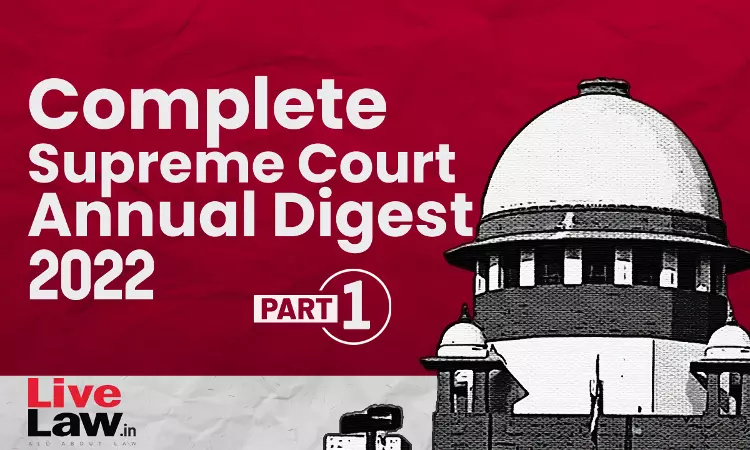Next Story
12 Feb 2023 5:26 PM IST
AAadhaarAadhaar Act 2016 - UIDAI directed to issue Aadhaar cards to sex workers without insisting proof of residence. Budhadev Karmaskar v. State of West Bengal, 2022 LiveLaw (SC) 525Act of GodAct of God - Meaning - When nothing of any external natural force had been in operation in a violent or sudden manner, the event of the fire in question could be referable to anything but to an act of...

